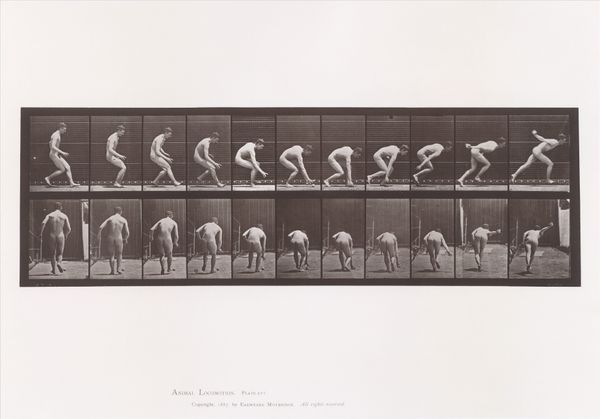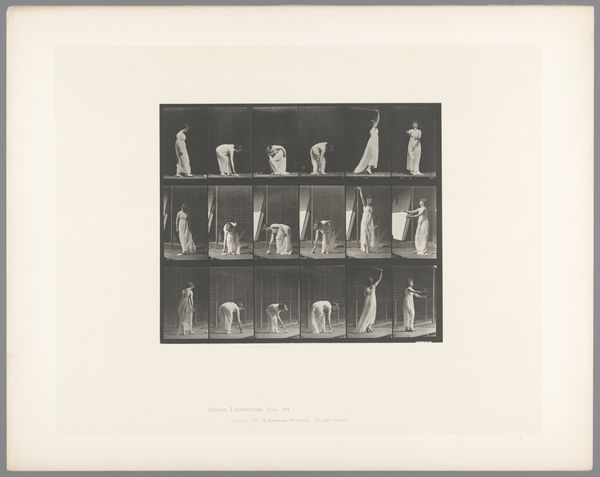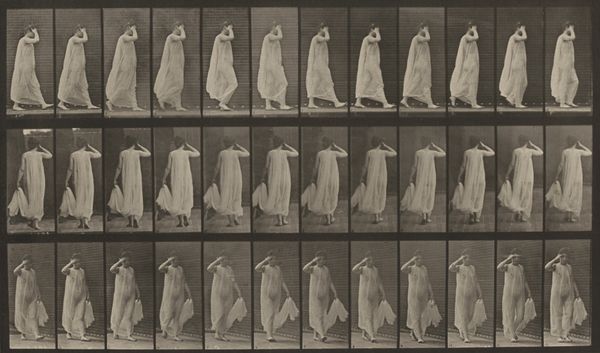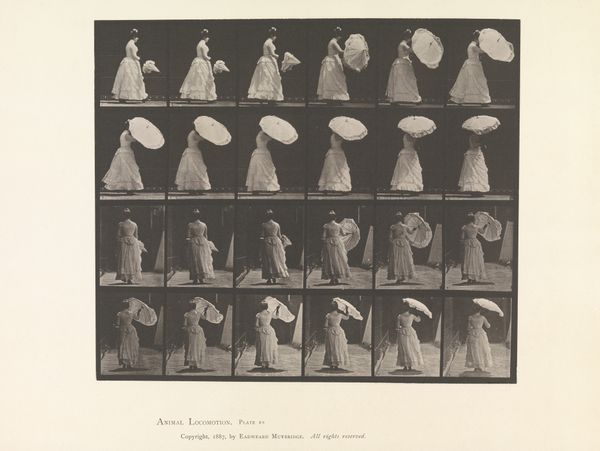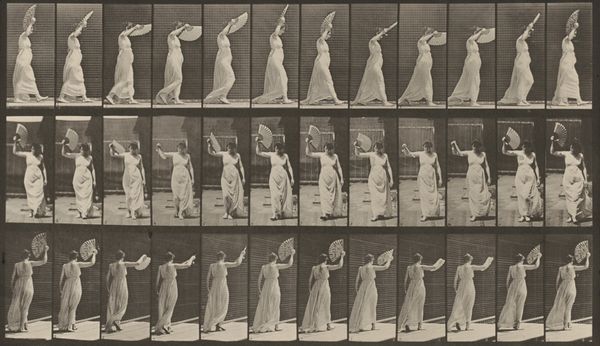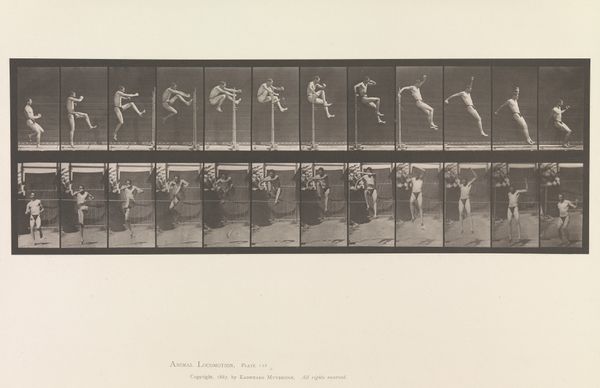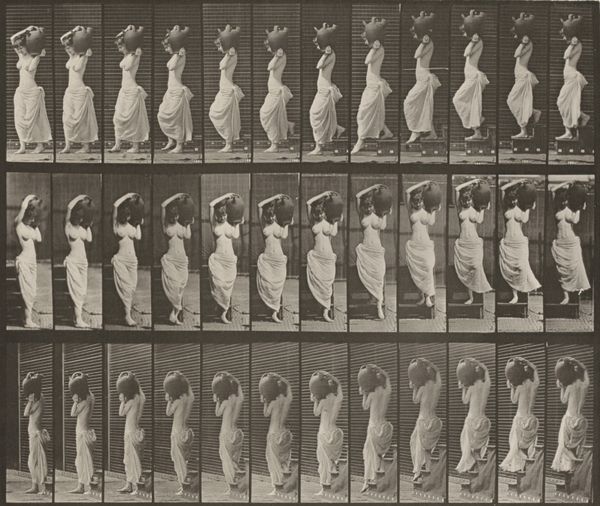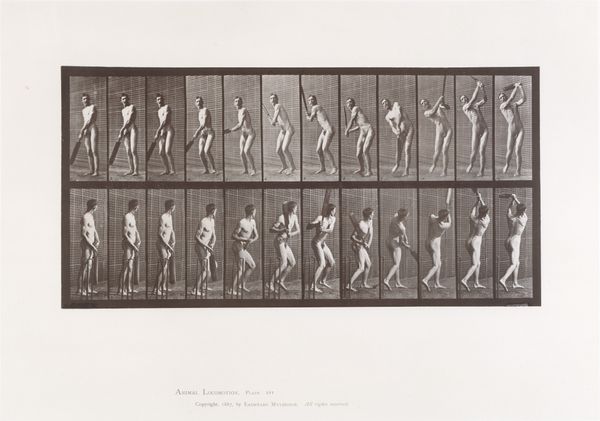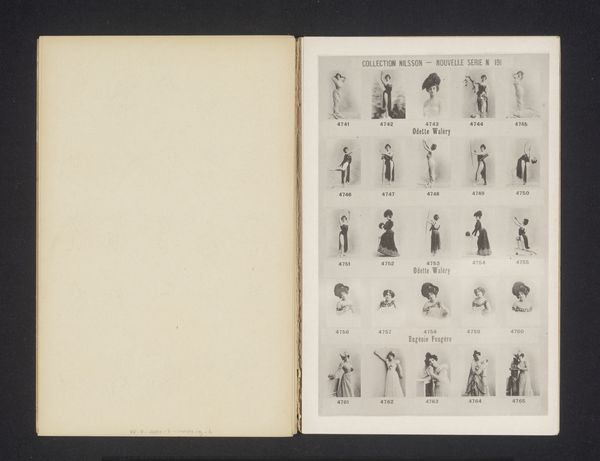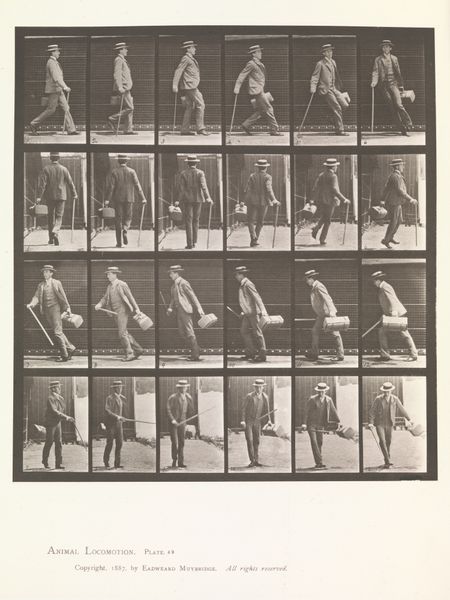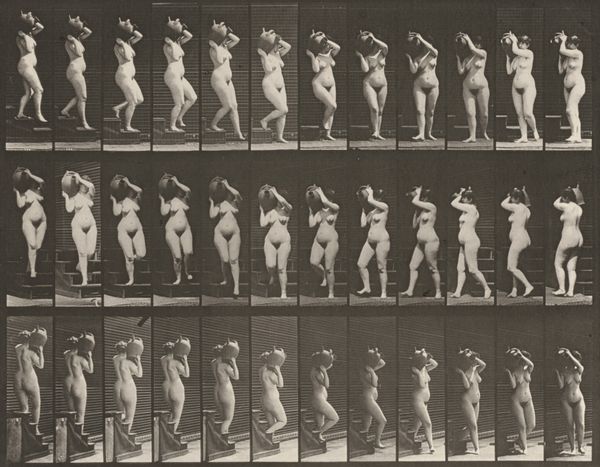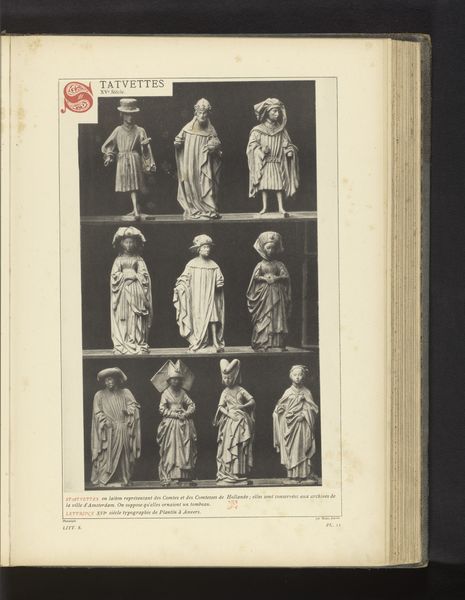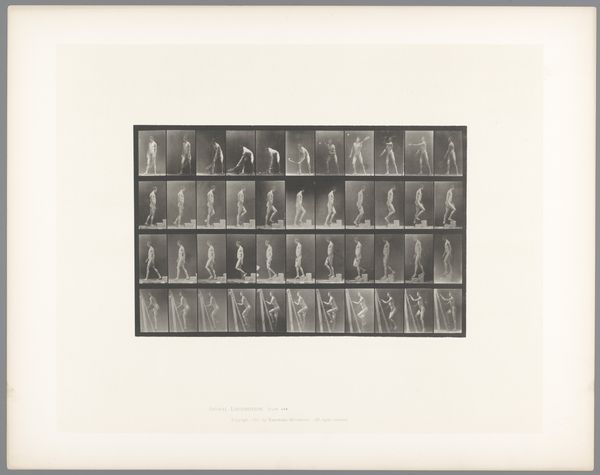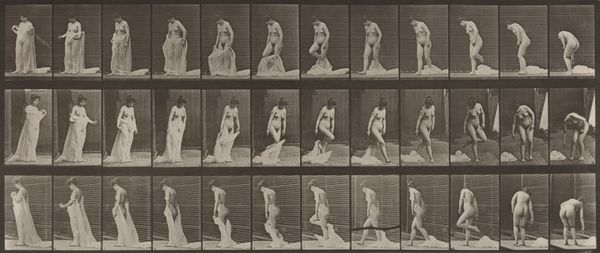
Animal Locomotion. An Electro-Photographic Investigation... of Animal Movements. Commenced 1872 - Completed 1885. Volume VI, Woman (Semi-Nude and Transparent Drapery) Children 1880s
0:00
0:00
photogram, photography, gelatin-silver-print
#
photogram
#
book
#
figuration
#
photography
#
gelatin-silver-print
#
men
#
realism
Copyright: Public Domain
Eadweard Muybridge created this photographic study, *Animal Locomotion*, between 1872 and 1885, during an era defined by rapid technological advancement and evolving social norms. Here, Muybridge meticulously captures the movement of women and children. These images, while seemingly objective, are steeped in the complex dynamics of gender and representation. The semi-nude figures draped in transparent fabric evoke classical ideals of beauty, yet they were produced in a time when women's bodies were heavily policed and sexualized. Muybridge’s work walks a tightrope between scientific inquiry and the voyeuristic gaze that was part of nineteenth-century society. Consider how these images might have been viewed by different audiences—scientists, artists, and the general public. Did they challenge or reinforce existing ideas about the female body and its role in society? "I have no desire to be connected with failures," Muybridge once stated. It makes me wonder if he considered the ethical dimensions of his photographic studies. These questions prompt us to think about the lasting impact of these images and the conversations they ignite about gender, representation, and the power of the photographic gaze.
Comments
No comments
Be the first to comment and join the conversation on the ultimate creative platform.
